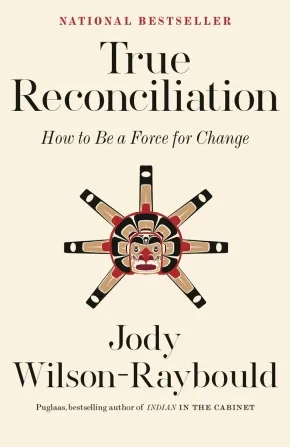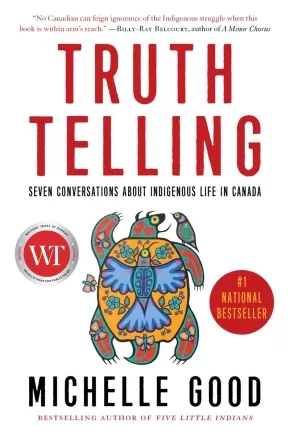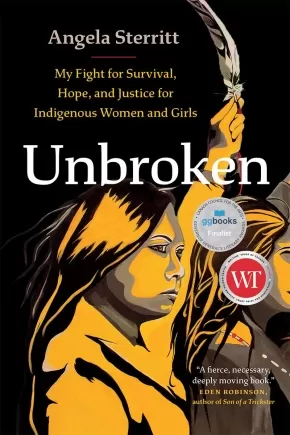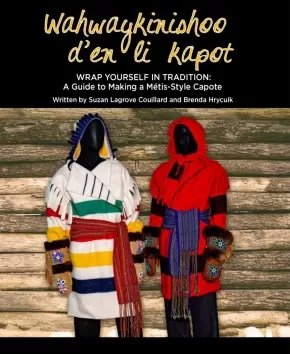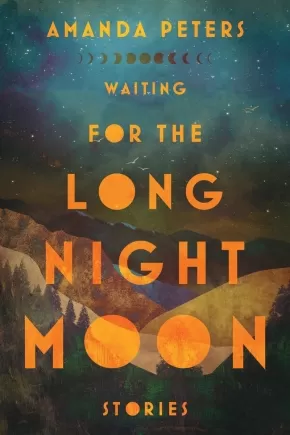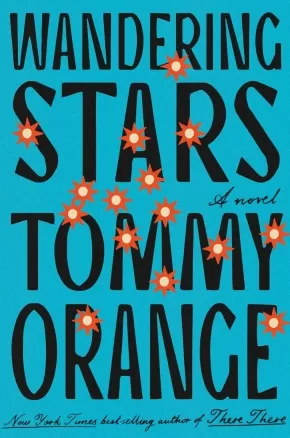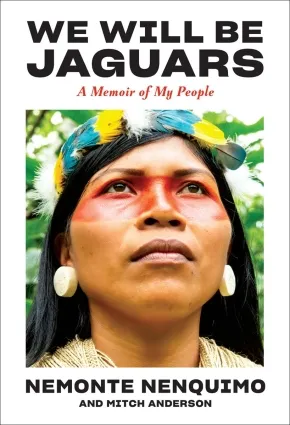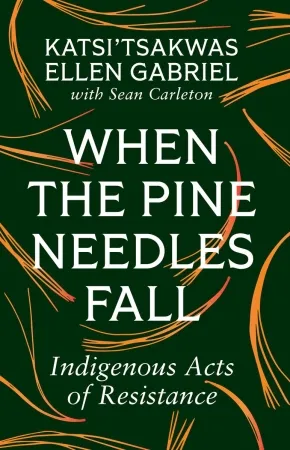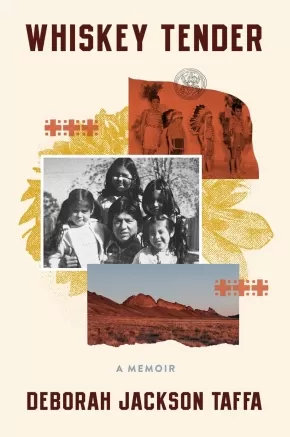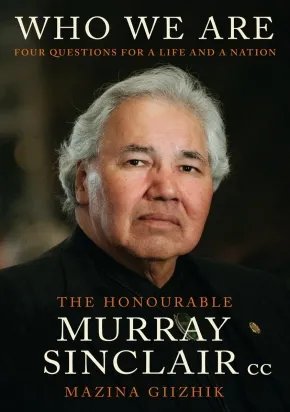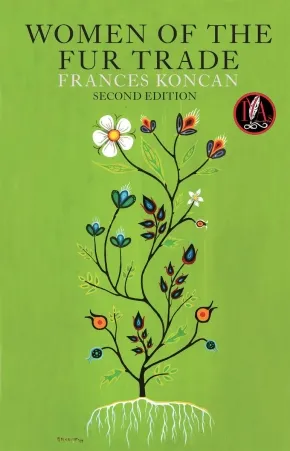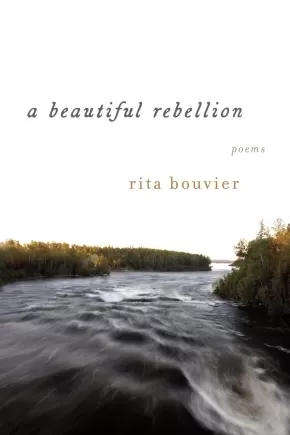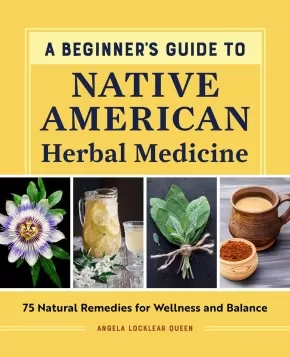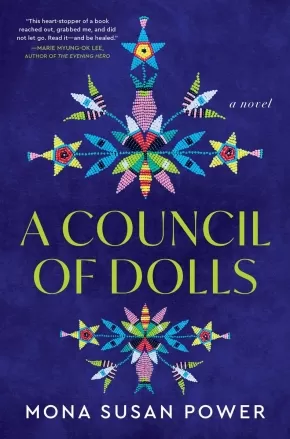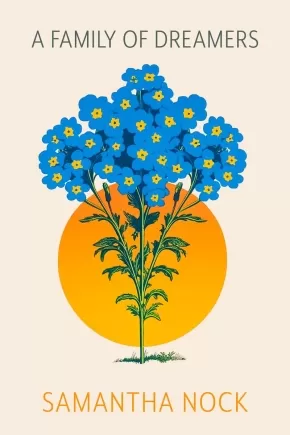Indigenous Studies
Synopsis:
There is one question Canadians have asked Jody Wilson-Raybould more than any other: What can I do to help advance reconciliation? It is clear that people from all over the country want to take concrete and tangible action that will make real change. We just need to know how to get started. This book provides that next step. For Wilson-Raybould, what individuals and organizations need to do to advance true reconciliation is self-evident, accessible, and achievable. True Reconciliation is broken down into three core practices—Learn, Understand, and Act—that can be applied by individuals, communities, organizations, and governments.
The practices are based not only on the historical and contemporary experience of Indigenous peoples in their relentless efforts to effect transformative change and decolonization, but also on the deep understanding and expertise about what has been effective in the past, what we are doing right, and wrong, today, and what our collective future requires. Fundamental to a shared way of thinking is an understanding of the Indigenous experience throughout the story of Canada. In a manner that reflects how work is done in the Big House, True Reconciliation features an “oral” history of these lands, told through Indigenous and non-Indigenous voices from our past and present.
The ultimate and attainable goal of True Reconciliation is to break down the silos we’ve created that prevent meaningful change, to be empowered to increasingly act as “inbetweeners,” and to take full advantage of this moment in our history to positively transform the country into a place we can all be proud of.
Additional Information
352 pages | 5.17" x 7.99" | Paperback
Synopsis:
A bold, provocative collection of essays exploring the historical and contemporary Indigenous experience in Canada.
With authority and insight, Truth Telling examines a wide range of Indigenous issues framed by Michelle Good’s personal experience and knowledge.
From racism, broken treaties, and cultural pillaging, to the value of Indigenous lives and the importance of Indigenous literature, this collection reveals facts about Indigenous life in Canada that are both devastating and enlightening. Truth Telling also demonstrates the myths underlying Canadian history and the human cost of colonialism, showing how it continues to underpin modern social institutions in Canada.
Passionate and uncompromising, Michelle Good affirms that meaningful and substantive reconciliation hinges on recognition of Indigenous self-determination, the return of lands, and a just redistribution of the wealth that has been taken from those lands without regard for Indigenous peoples.
Truth Telling is essential reading for those looking to acknowledge the past and understand the way forward.
Reviews
“With blistering clarity, Michelle Good exposes the contradictions at the heart of Canada, but also imagines beyond them, setting out a specific vision for an Indigenous future governed by us. Good’s essays, woven with personal testimony, are deeply researched and traverse great swaths of history and policy; they are also very rousing and moving. No Canadian can feign ignorance of the Indigenous struggle when this book is within arm’s reach.” — Billy-Ray Belcourt, author of A Minor Chorus
"Good reminds us what the truth in Truth and Reconciliation actually requires of all of us: Indigenous peoples and Canadians. Addressing storytelling and historical myth-making, this book would have changed my nineteen-year-old world had it been available and rendered normative for my teachers. Good’s work is formidable, elemental and reminiscent of Cardinal’s Unjust Society. This work, should be required reading for every Canadian. Smart, generous and insightful. 'There is no such thing as Crown Land. It is all Indigenous land.' Good writes. This truth resonates. Serves notice: it is time." — Dr. Tracey Lindberg, Law Professor, author of Birdie
“Truth Telling is at once heartfelt, instructive, and authentic, expertly exploring the key issues that have shaped the Indigenous reality in Canada.… This collection is an indispensable resource.” — Waubgeshig Rice, author of Moon of the Crusted Snow
“As Canadians search for a national approach to reconciliation... this book reminds us of how we arrived at this moment.…[and] is the kind of reference that will help us navigate our fraught journey.” — Dr. Eldon Yellowhorn, Professor of Indigenous Studies, Simon Fraser University
“Truth Telling is a powerful, urgent, and necessary book that gets to the heart of true reconciliation and maps a course for achieving it. Bridging personal stories and lived experiences with sharp historical analysis, Michelle Good’s writing is both beautiful and heartbreaking. Honest, forthright, and powerful, Truth Telling offers insights and analysis that every policymaker and politician—indeed, any person who calls Canada “home”— can and must read. Urgently.” — 2023 Balsillie Prize for Public Policy Jury
Educator Information
Truth Telling is a collection of essays about the contemporary Indigenous experience in Canada.
Additional Information
232 pages | 5.00" x 7.50" | Paperback
Synopsis:
Unbroken is an extraordinary work of memoir and investigative journalism focusing on missing and murdered Indigenous women and girls, written by an award-winning Gitxsan journalist who survived life on the streets against all odds.
As a Gitxsan teenager navigating life on the streets, Angela Sterritt wrote in her journal to help her survive and find her place in the world. Now an acclaimed journalist, she writes for major news outlets to push for justice and to light a path for Indigenous women, girls, and survivors. In her brilliant debut, Sterritt shares her memoir alongside investigative reporting into cases of missing and murdered Indigenous women in Canada, showing how colonialism and racism led to a society where Sterritt struggled to survive as a young person, and where the lives of Indigenous women and girls are ignored and devalued.
Growing up, Sterritt was steeped in the stories of her ancestors: grandparents who carried bentwood boxes of berries, hunted and trapped, and later fought for rights and title to that land. But as a vulnerable young woman, kicked out of the family home and living on the street, Sterritt inhabited places that, today, are infamous for being communities where women have gone missing or been murdered: Vancouver's Downtown Eastside, and, later on, Northern BC's Highway of Tears. Sterritt faced darkness: she experienced violence from partners and strangers and saw friends and community members die or go missing. But she navigated the street, group homes, and SROs to finally find her place in journalism and academic excellence at university, relying entirely on her own strength, resilience, and creativity along with the support of her ancestors and community to find her way.
"She could have been me," Sterritt acknowledges today, and her empathy for victims, survivors, and families drives her present-day investigations into the lives of missing and murdered Indigenous women. In the end, Sterritt steps into a place of power, demanding accountability from the media and the public, exposing racism, and showing that there is much work to do on the path towards understanding the truth. But most importantly, she proves that the strength and brilliance of Indigenous women is unbroken, and that together, they can build lives of joy and abundance.
Reviews
"Sterritt's story is living proof of how courageous Indigenous women are. Listen to her voice and hear the sound of the land, hear the sound of our women weeping but also raging—refusing to be neglected or ignored any longer."—Tanya Talaga, author of Seven Fallen Feathers and All Our Relations
"A fierce, necessary, deeply moving book. Sterritt uses her difficult personal journey to frame the terrible history of missing and murdered Indigenous women in Canada. Haunting and illuminating."— Eden Robinson, author of Son of a Trickster
"Angela Sterritt takes on Canada's deeply flawed justice system, deftly exposing systemic racism and the continuing impacts of colonialism. This book is a compelling read and a well-researched and powerful heart-centered memoir."—Lorimer Shenher, author of That Lonely Section of Hell
"With facts and humanity, Angela Sterritt effortlessly draws us into this emotional and important read. A courageous Indigenous voice who uses her personal journey to educate all of us about critical and urgent issues we must address, including Missing and Murdered Indigenous Women and Girls."— Jody Wilson-Raybould
"A new clear, compelling, and urgent voice illuminates a critical topic of our times with the passion and profound caring of a devoted sister. A tour de force."—Darrel McLeod, author of Mamaskatch and Peyakow
"A remarkable life story. . . Angela Sterritt is a formidable storyteller and a passionate advocate."—Cherie Dimaline, author of The Marrow Thieves
"[A] thought-provoking memoir. . . Beginning with a haunting list of names of Indigenous women and girls who were either murdered or missing along the Highway of Tears, the book tells the stories of such ignored and abused victims. . . The final product is eyeopening, making use of tragic firsthand accounts from grieving families and Sterritt's personal memories, all raw and rich with detail. . . [P]owerful."—Foreword Reviews
Additional Information
6.00" x 9.00" | Paperback
Synopsis:
Follow in the tradition of your ancestors as you learn how to hand sew your capote, a hand-sewn coat made from a wool blanket. Wahwaykinishoo d’en li kapot – Wrap Yourself in Tradition: A Guide to Making a Métis-Style Capote also includes the history of the capote and its connection to Métis heritage. Enjoy the experience, feel the warmth, share the feeling, and wear it with pride. Written by Suzan Lagrove Couillard and Brenda Hrycuik.
Additional Information
57 Pages | 10" x 8.5" | Spiral Bound
Synopsis:
In her debut collection of short fiction, Amanda Peters describes the Indigenous experience from an astonishingly wide spectrum in time and place—from contact with the first European settlers, to the forced removal of Indigenous children, to the present-day fight for the right to clean water.
In this intimate collection, Peters melds traditional storytelling with beautiful, spare prose to describe the dignity of the traditional way of life, the humiliations of systemic racism and the resilient power to endure. A young man returns from residential school only to realize he can no longer communicate with his own parents. A young woman finds purpose and healing on the front lines as a water protector. An old man remembers his life as he patiently waits for death. And a young girl nervously dances in her first Mawi’omi. The collection also includes the story “The Berry Pickers,” which inspired Peters’ critically acclaimed novel of the same name, as well as the Indigenous Voices Award–nominated story “Pejipug (Winter Arrives).”
At times sad, sometimes disturbing but always redemptive, the stories in Waiting for the Long Night Moon will remind you that where there is grief there is also joy, where there is trauma there is resilience and, most importantly, there is power.
Educator Information
Waiting for the Long Night Moon is a collection of short stories.
Additional Information
256 pages | 6.00" x 9.00" | Paperback
Synopsis:
The eagerly awaited follow-up to Pulitzer Prize finalist Tommy Orange’s breakout best seller There There—winner of the PEN/Hemingway Award, the John Leonard Prize, the American Book Award, and one of the New York Times Ten Best Books of the Year—Wandering Stars traces the legacies of the Sand Creek Massacre of 1864 and the Carlisle Industrial School for Indians through to the shattering aftermath of Orvil Redfeather’s shooting in There There.
Colorado, 1864. Star, a young survivor of the Sand Creek Massacre, is brought to the Fort Marion Prison Castle, where he is forced to learn English and practice Christianity by Richard Henry Pratt, an evangelical prison guard who will go on to found the Carlisle Industrial School for Indians, an institution dedicated to the eradication of Native history, culture, and identity. A generation later, Star’s son, Charles, is sent to the school, where he is brutalized by the man who was once his father’s jailer. Under Pratt’s harsh treatment, Charles clings to moments he shares with a young fellow student, Opal Viola, as the two envision a future away from the institutional violence that follows their bloodline.
Oakland, 2018. Opal Viola Victoria Bear Shield is barely holding her family together after the shooting that nearly took the life of her nephew Orvil. From the moment he awakens in his hospital bed, Orvil begins compulsively googling school shootings on YouTube. He also becomes emotionally reliant on the prescription medications meant to ease his physical trauma. His younger brother Lony, suffering from PTSD, is struggling to make sense of the carnage he witnessed at the shooting by secretly cutting himself and enacting blood rituals which he hopes will connect him to his Cheyenne heritage. Opal is equally adrift, experimenting with Ceremony and peyote, searching for a way to heal her wounded family.
Extending his constellation of narratives into the past and future, Tommy Orange once again delivers a story that is by turns shattering and wondrous, a book piercing in its poetry, sorrow, and rage—a masterful follow-up to his already—classic first novel, and a devastating indictment of America’s war on its own people.
Additional Information
336 pages | 5.50" x 8.25" | Hardcover
Synopsis:
From a fearless, internationally acclaimed activist comes an impassioned memoir about an indigenous childhood, a clash of cultures, and the fight to save the Amazon rainforest
We Will Be Jaguars is an astonishing memoir by an equally astonishing woman. Nenquimo is a winner of TIME magazine’s Earth Award, and MS. magazine named this book among the Most Anticipated Feminist Books of 2024.
Born into the Waorani tribe of Ecuador’s Amazon rainforest—one of the last to be contacted by missionaries in the 1950s—Nemonte Nenquimo had a singular upbringing.
She was taught about plant medicines, foraging, oral storytelling, and shamanism by her elders. At age fourteen, she left the forest for the first time to study with an evangelical missionary group in the city. Eventually, her ancestors began appearing in her dreams, pleading with her to return and embrace her own culture. She listened.
Two decades later, Nemonte has emerged as one of the most forceful voices in climate change activism. She has spearheaded the alliance of indigenous nations across the Upper Amazon and led her people to a landmark victory against Big Oil, protecting over a half million acres of primary rainforest. Her message is as sharp as a spear—honed by her experiences battling loggers, miners, oil companies and missionaries.
In We Will Be Jaguars, she partners with her husband, Mitch Anderson, founder of Amazon Frontlines, digging into generations of oral history, uprooting centuries of conquest, hacking away at racist notions of indigenous peoples, and ultimately revealing a life story as rich, harsh, and vital as the Amazon rainforest herself.
Reviews
“If you want to understand the climate crisis and do something about it, read this book. Nemonte’s writing is as provocative as it is inspiring, a heroine speaking her truth which is exactly what we need to hear. Had we listened long ago to these voices we wouldn’t be in the eye of the storm now.” — Emma Thompson
“Everyone should read this––never has a book been more urgent. Truly soul-stirring, Nemonte’s book is a radical manifesto for our times. It moved me to tears. Her story flows like a mighty river, and I was utterly taken by its current.”— Vanessa Kirby, actress and activist
"Full of wisdom, sadness, flourishes of joy and more than a few psychedelic visions, We Will Not be Saved is testament not only to Nenquimo’s resilience but also her deep spiritual connection to her land and ancestors. ... [It] plant[s] readers right in the heart of the rainforest, immersing them in its sounds, smells and kaleidoscopic landscapes. Many are the memoirs that profess to tell untold stories, but here that claim is watertight." — The Guardian
Additional Information
368 pages | 6.00" x 9.00" | Hardcover
Synopsis:
There have been many things written about Canada’s violent siege of Kanehsatà:ke and Kahnawà:ke in the summer of 1990, but When the Pine Needles Fall: Indigenous Acts of Resistance is the first book from the perspective of Katsi’tsakwas Ellen Gabriel, who was the Kanien’kehá:ka (Mohawk) spokesperson during the siege. When the Pine Needles Fall, written in a conversational style by Gabriel with historian Sean Carleton, offers an intimate look at Gabriel’s life leading up to the 1990 siege, her experiences as spokesperson for her community, and her work since then as an Indigenous land defender, human rights activist, and feminist leader.
More than just the memoir of an extraordinary individual, When the Pine Needles Fall offers insight into Indigenous language, history, and philosophy, reflections on our relationship with the land, and calls to action against both colonialism and capitalism as we face the climate crisis. Gabriel’s hopes for a decolonial future make clear why protecting Indigenous homelands is vital not only for the survival of Indigenous peoples, but for all who live on this planet.
Awards
- 2025 Canadian Historical Association Indigenous History Book Prize
- 2025 Errol Sharpe Book Prize
- 2025 Wilson Institute Book Prize
Reviews
“When the Pine Needles Fall is a profound treatise and manifesto chronicling Haudenosaunee resistance to land theft by one of the most important Land Defenders of our time. Gabriel’s work is the book on Indigenous resistance I’ve been waiting for my whole life. It is a must-read for anyone concerned with the continuation of life on this planet.” — Leanne Betasamosake Simpson, co-author of “Rehearsals for Living”
“Katsi’tsakwas Ellen Gabriel’s words in When the Pine Needles Fall are gifts that serve as a beacon of light by igniting our hearts, minds, and spirits. Through her boundless wisdom grounded in healing work as a Land Defender on Turtle Island, she calls for fierce Indigenous resistance and radical global solidarity to put an end to root causes of oppression worldwide: capitalism, patriarchy, and settler colonialism. Gabriel reminds us that a more just, kind, and caring world—where all life is precious—is possible for the next seven generations, but only if we fight for it.” — Samir Shaheen-Hussain, MD, author of “Fighting for A Hand to Hold: Confronting Medical Colonialism against Indigenous Children in Canada”
“When the Pine Needles Fall is a remarkable and revelatory account of the 1990 siege of Kanehsatà:ke and Kahnawà:ke, when provincial, municipal, and national armed forces targeted these Mohawk communities. It is also one of the best first-hand accounts of Indigenous activism that I have ever read, relayed in moving and extraordinary form. An essential addition to contemporary First Nations history and the growing field of Indigenous Studies.” — Ned Blackhawk, Western Shoshone, author of “The Rediscovery of America: Native Peoples and the Unmaking of U.S. History”
“As a treatise on women and culture-based governance from a remarkable Haudenosaunee leader, When the Pine Needles Fall offers me hope and renewed energy. Through her life work, Ellen Gabriel demonstrates how to persevere, remain optimistic, and continue with creative and activist endeavours. The book effectively situates the ‘crisis’ within its centuries-long context, marking a tipping point for Canada while highlighting ongoing challenges. It also examines how mainstream narratives are constructed around Indigenous struggles, providing a comprehensive profile of Gabriel’s diverse contributions to Indigenous resistance and resurgence.” — Kim Anderson, author of“ Life Stages and Native Women: Memory, Teachings, and Story Medicine”
“Katsi’tsakwas Ellen Gabriel’s personal account of the 1990 siege of Kanehsatà:ke and Kahnawà:ke is a crucial contribution to our understanding of these dramatic events and of the political context of the time. Her lifetime dedication to the defence of Indigenous peoples and women’s rights is truly exemplary and constitutes an inspiration for generations to come.” — Bernard Duhaime, professor, Faculty of Political Science and Law, Université du Québec à Montréal
“In When the Pine Needles Fall, celebrated activist Katsi’tsakwas Ellen Gabriel gifts us with an expansive account of the 1990 siege of Kanehsatà:ke and Kahnawà:ke. This alone provides a captivating analysis of this seminal moment and its legacy within larger movements for Indigenous sovereignty on Turtle Island. But Gabriel, an artist, also paints the negative space, braiding her relationship to the land, Kanien’kehá:ka teachings, and the language with her tireless work against settler colonialism, extractive capitalism, and patriarchy. This essential book is an inspiring conversation reminding us that decolonization is world-building rooted in an ethics of relationality and care.” — Nazila Bettache, MD, MPH; assistant professor of medicine, Université de Montréal; social justice organizer and co-editor of “Reflections on Illness”
“I honour my sister whose words speak the truth. One of the most powerful quotes by Katsi’tsakwas is: ‘I’m a Kanien’kehá:ka woman who cares deeply about our land and I want a better future for the generations to come.’ Everything she speaks about in this book is directly connected to these words.” — Beverley Jacobs, CM, LLB, LLM, PhD; Kanien’kehá:ka, Bear Clan, Six Nations Grand River Territory; associate professor, Faculty of Law, University of Windsor
Additional Information
280 pages | 5.50" x 8.50" | Paperback
Synopsis:
Reminiscent of the works of Mary Karr and Terese Marie Mailhot, a memoir of family and survival, coming-of-age on and off the reservation, and of the frictions between mainstream American culture and Native inheritance; assimilation and reverence for tradition.
Deborah Jackson Taffa was raised to believe that some sacrifices were necessary to achieve a better life. Her grandparents—citizens of the Quechan Nation and Laguna Pueblo tribe—were sent to Indian boarding schools run by white missionaries, while her parents were encouraged to take part in governmental job training off the reservation. Assimilation meant relocation, but as Taffa matured into adulthood, she began to question the promise handed down by her elders and by American society: that if she gave up her culture, her land, and her traditions, she would not only be accepted, but would be able to achieve the “American Dream.”
Whiskey Tender traces how a mixed tribe native girl—born on the California Yuma reservation and raised in Navajo territory in New Mexico—comes to her own interpretation of identity, despite her parent’s desires for her to transcend the class and “Indian” status of her birth through education, and despite the Quechan tribe’s particular traditions and beliefs regarding oral and recorded histories. Taffa’s childhood memories unspool into meditations on tribal identity, the rampant criminalization of Native men, governmental assimilation policies, the Red Power movement, and the negotiation between belonging and resisting systemic oppression. Pan-Indian, as well as specific tribal histories and myths, blend with stories of a 1970s and 1980s childhood spent on and off the reservation.
Taffa offers a sharp and thought-provoking historical analysis laced with humor and heart. As she reflects on her past and present—the promise of assimilation and the many betrayals her family has suffered, both personal and historical; trauma passed down through generations—she reminds us of how the cultural narratives of her ancestors have been excluded from the central mythologies and structures of the “melting pot” of America, revealing all that is sacrificed for the promise of acceptance.
Reviews
“We have more Native stories now, but we have not heard one like this. Whiskey Tender is unexpected and propulsive, indeed tender, but also bold, and beautifully told, like a drink you didn’t know you were thirsty for. This book, never anything less than mesmerizing, is full of family stories and vital Native history. It pulses and it aches, and it lifts, consistently. It threads together so much truth by the time we are done, what has been woven together equals a kind of completeness from brokenness, and a hope from knowing love and loss and love again by naming it so.” — Tommy Orange, National Bestselling Author of There There
"What makes Taffa’s version exceptional is her visceral prose and sharp attunement to the tragedies of assimilation. This is a must-read."— Publishers Weekly (starred review)
"A warm and propulsive personal history that lucidly traces its Native and colonial legacies to draw a complex and humane portrait of a family and a pivotal political time in U.S. history. Taffa is a gifted raconteur and her memoir should be required reading for everyone in this country." — Melissa Febos, author of Body Work and Girlhood, winner of the National Book Critics Circle Award
Additional Information
304 pages | 6.00" x 9.00" | 6 Photographs | Hardcover
Synopsis:
Judge, senator, and activist. Father, grandfather, and friend. This is Murray Sinclair’s story—and the story of a nation—in his own words, an oral history that forgoes the trappings of the traditional written memoir to center Indigenous ways of knowledge and storytelling. As Canada moves forward into the future of reconciliation, one of its greatest leaders guides us to ask the most important and difficult question we can ask of ourselves: Who are we?
For decades, Senator Sinclair has fearlessly educated Canadians about the painful truths of our history. He was the first Indigenous judge in Manitoba, and only the second Indigenous judge in Canadian history. He was the Chair of the Truth and Reconciliation Commission, and remains one of the foremost voices on Reconciliation. And now, for the first time, he will share his full story—and his full vision for our nation—with readers across Canada.
Drawing on Senator Sinclair’s unique experiences, and his perspectives regarding Indigenous identity, human rights, and justice in Canada, Who We Are will examine the roles of history, resistance, and resilience in the pursuit of finding that path forward, and healing the damaged relationship between Indigenous Peoples and non-Indigenous peoples in Canada. And in doing so, it will reveal Senator Sinclair’s life in a new and direct way, exploring how all of these experiences shaped him as an Anishinaabe man, father, and grandfather.
Structured around the four questions that have long shaped Senator Sinclair’s thinking and worldview—Where do I come from? Where am I going? Why am I here? Who am I?—Who We Are will take readers into the story of his remarkable life as never before, while challenging them to embrace an inclusive vision for our shared future.
Additional Information
480 pages | 6.00" x 9.00" | Hardcover
Synopsis:
In eighteen hundred and something something, somewhere upon the banks of a Reddish River in Treaty One Territory, three very different women with a preference for twenty-first century slang sit in a fort sharing their views on life, love, and the hot nerd Louis Riel.
Marie-Angelique, a Metis Taurus, is determined to woo Louis (a Metis Libra)—who will be arriving soon—by sending him boldly flirtatious letters. Eugenia, an Ojibwe Sagittarius, brings news of rebellion back to the fort after trading, but isn’t impressed by Louis’s true mediocre nature. And Cecilia, a pregnant British Virgo, is anxiously waiting on her husband’s return from an expedition, but can’t resist pining over the heartthrob Thomas Scott (Irish Capricorn), who is actually the one secretly responding to Marie-Angelique’s letters. This will all go smoothly, right?
This lively historical satire of survival and cultural inheritance shifts perspectives from the male gaze onto women’s power in the past and present through the lens of the rapidly changing world of the Canadian fur trade.
Awards
- 2023 Indigenous Voices Award for Published Prose in English
- 2018 Toronto Fringe Best New Play Contest winner
- 2024 Dora Mavor Moore Award for Outstanding New Play
Reviews
“Not only is the play a fun and clever look at the province’s history, but by weaving in modern slang and references, Koncan (who is of Anishinaabe and Slovene descent) highlights how many Indigenous issues from our past are still relevant today.” — Stephanie Cram, CBC News
“A timely, provocative piece of theatre written from a perspective and voice we need to hear.”— Ian Ross, Winnipeg Free Press
Additional Information
120 pages | 5.32" x 8.35" | 2nd Edition | Paperback
Synopsis:
This evocative new poetry collection speaks with a fierce tenderness of many aspects of the poet’s life: a childhood spent on the banks of the Churchill River, the death of a beloved one, the struggle to try to find forgiveness for wrongs done and the weariness of trying to redress those wrongs. And, most poignantly, a beautiful rebellion reaches one hand back to Louis Riel and one hand forward to future Métis generations.
The poems navigate losses that we all suffer when the world of our childhoods has altered irrevocably; they reveal the pain caused by residential schools and share despair at the lack of progress in social justice and self-determination. Rita Bouvier’s work is intimate and insightful, written in inviting, open-hearted language that includes many Cree and Michif phrases and their translation.
There is a quiet power--riverine, deep, unstoppable--that flows through these words.
Additional Information
72 pages | 6.00" x 9.00" | Paperback
Synopsis:
Improve your well-being with Native American herbal medicine
Native American herbal medicine offers a powerful way to connect with the earth and heal naturally—and with this handbook of Native American herbs, you can learn all about herb uses and their restorative effects. Written by an Indigenous herbalist, this guide shows you how to responsibly use traditional plants to treat anxiety, colds, inflammation, and more.
This standout among books about herbs and healing will help you:
- Learn about a time-honored practice—Discover the origins and healing secrets of Native American herbalism, its traditional and modern uses, and how tools like the medicine wheel teach us about our relationship with the natural world.
- Identify the essential herbs—Explore the healing properties of medicinal herbs for wellness, from anise hyssop to yerba santa.
- Make 75 natural remedies—Ease physical and emotional ailments with Native American remedies, like Memory Support Tea, Stress-Induced Headache Tincture, and Antibacterial Healing Herb Liniment.
Tap into traditional wisdom with this Native American herbal medicine book for health and well-being.
Reviews
"A beautiful jumping-off point for anyone who is interested in practical herbalism. Angela organizes the wisdom of Native American herbalism in a way that is accessible for anyone to pick up and fold into their everyday life." —Kathleen Lee, acupuncturist, herbalist, and spiritual business mentor
"Angela is a wise and fierce protector of plant medicine and traditions of healing. Her first book, A Beginner's Guide to Native American Herbal Medicine, is a meaningful, accessible resource for readers who seek to ground themselves in understanding and build an herbal practice of integrity." —Graham Wesley
Additional Information
165 pages | 7.50" x 9.25" | full-colour photographs throughout | Paperback
Synopsis:
The long-awaited, profoundly moving, and unforgettable new novel from PEN Award–winning Native American author Mona Susan Power, spanning three generations of Yanktonai Dakota women from the 19th century to the present day.
From the mid-century metropolis of Chicago to the windswept ancestral lands of the Dakota people, to the bleak and brutal Indian boarding schools, A Council of Dolls is the story of three women, told in part through the stories of the dolls they carried….
Sissy, born 1961: Sissy’s relationship with her beautiful and volatile mother is difficult, even dangerous, but her life is also filled with beautiful things, including a new Christmas present, a doll called Ethel. Ethel whispers advice and kindness in Sissy’s ear, and in one especially terrifying moment, maybe even saves Sissy’s life.
Lillian, born 1925: Born in her ancestral lands in a time of terrible change, Lillian clings to her sister, Blanche, and her doll, Mae. When the sisters are forced to attend an “Indian school” far from their home, Blanche refuses to be cowed by the school’s abusive nuns. But when tragedy strikes the sisters, the doll Mae finds her way to defend the girls.
Cora, born 1888: Though she was born into the brutal legacy of the “Indian Wars,” Cora isn’t afraid of the white men who remove her to a school across the country to be “civilized.” When teachers burn her beloved buckskin and beaded doll Winona, Cora discovers that the spirit of Winona may not be entirely lost…
A modern masterpiece, A Council of Dolls is gorgeous, quietly devastating, and ultimately hopeful, shining a light on the echoing damage wrought by Indian boarding schools, and the historical massacres of Indigenous people. With stunning prose, Mona Susan Power weaves a spell of love and healing that comes alive on the page.
Reviews
“A Council of Dolls reached out, grabbed me and did not let go. Power’s ability to make language sing, cry, scream, and laugh illuminates this heartstopper of a book that shines a light into the dark corners of America’s history. I wanted the generational journey I was taking with these unforgettable characters—and their dolls—to never end. Read it--and be healed." — Marie Myung-Ok Lee, author of The Evening Hero
“A Council of Dolls absorbs through the skin, enters the bone, and disperses through the psyche—it perfectly captures the internal roots of the Native experience. Through the lives of three Dakota women, we grapple with the emotional, psychological, and spiritual toll on Indigenous peoples enduring an often brutal system and, moreover, how strength, healing, and love reverberate down each passing generation to dispense hope and resiliency. I cannot more highly recommend Power’s newest masterpiece.” — Oscar Hokeah, PEN/Hemingway award-winning author of Calling for a Blanket Dance
"Mona Susan Power’s new novel is an honor song to the love and strength of Native families and our stories, to our brilliant selves. I couldn’t have known how much I needed the wisdom and offerings of these pages." — Kelli Jo Ford, author of Crooked Hallelujah
“This tender and magical novel will stay with me for a long time. Mona Susan Power writes with dazzling empathy. The result is a heart-rending and many-layered narrative, a captivating story which is also a thrilling testimonial to the power of stories.” — Margot Livesey, author of The Boy in the Field
"A resplendent novel about the spirited lives of three inspiring women who endure significant change and hardship. Each story so deeply compelling I wanted to read quickly but was magnetized by the transformative power of each voice. A mighty, dazzling whirlwind of storytelling. These stories lift from the page. Prepare to stay up all night. A Council of Dolls is mesmerizing. Take a deep breath! Mona Susan Power can peer into darkness and transform it." — Debra Magpie Earling — Debra Magpie Earling
“A work of exquisite beauty and courageous truth-telling, and an unforgettable homage to ancestral suffering and strength.”
— Sheila O’Connor, author of Evidence of V
“A talent like Susan Power comes along once in a lifetime, and lucky for us she's arrived. Here is a debut so stunning, so extraordinary in its depth and passion, you will swear there's a miracle on every page.” — Alice Hoffman, on The Grass Dancer
"This book is well-written. It includes elements of historical fiction and a bit of real life horror. The role of the dolls in these women's lives was the most thought-provoking aspect of the novel. It added a bit of a fantasy element to the story. I wondered what the author's intention was. The dolls seem to be symbolic in addition to invisible friends for the girls. They were also silent, supposedly inanimate witnesses to what the young women experienced. The parts of the story told from the dolls' POV were especially intriguing. I enjoyed the section about how the Shirley Temple doll was made, and the doll was presented as self-aware. The author wove mystery and symbolism around the dolls without being blatant. She left readers room to make their own interpretations. I really enjoyed and appreciated that. The book is also full of interesting philosophical statements." - Claudia, Goodreads Review
Additional Information
304 pages | 6.00" x 9.00" | Hardcover
Synopsis:
In this debut poetry collection, Samantha Nock redefines where and what “home” is.
A Family of Dreamers delves into the complexities of growing up in rural northeast British Columbia and the love and grief that blooms there. In this debut collection, Samantha Nock weaves together threads of fat liberation, desirability politics, and heartbreak while working through her existence as a young Indigenous woman coming of age in the city. The result is a love song to northern cuzzins, dive bars, and growing up.
Additional Information
101 pages | 5.98" x 9.01" | Paperback

